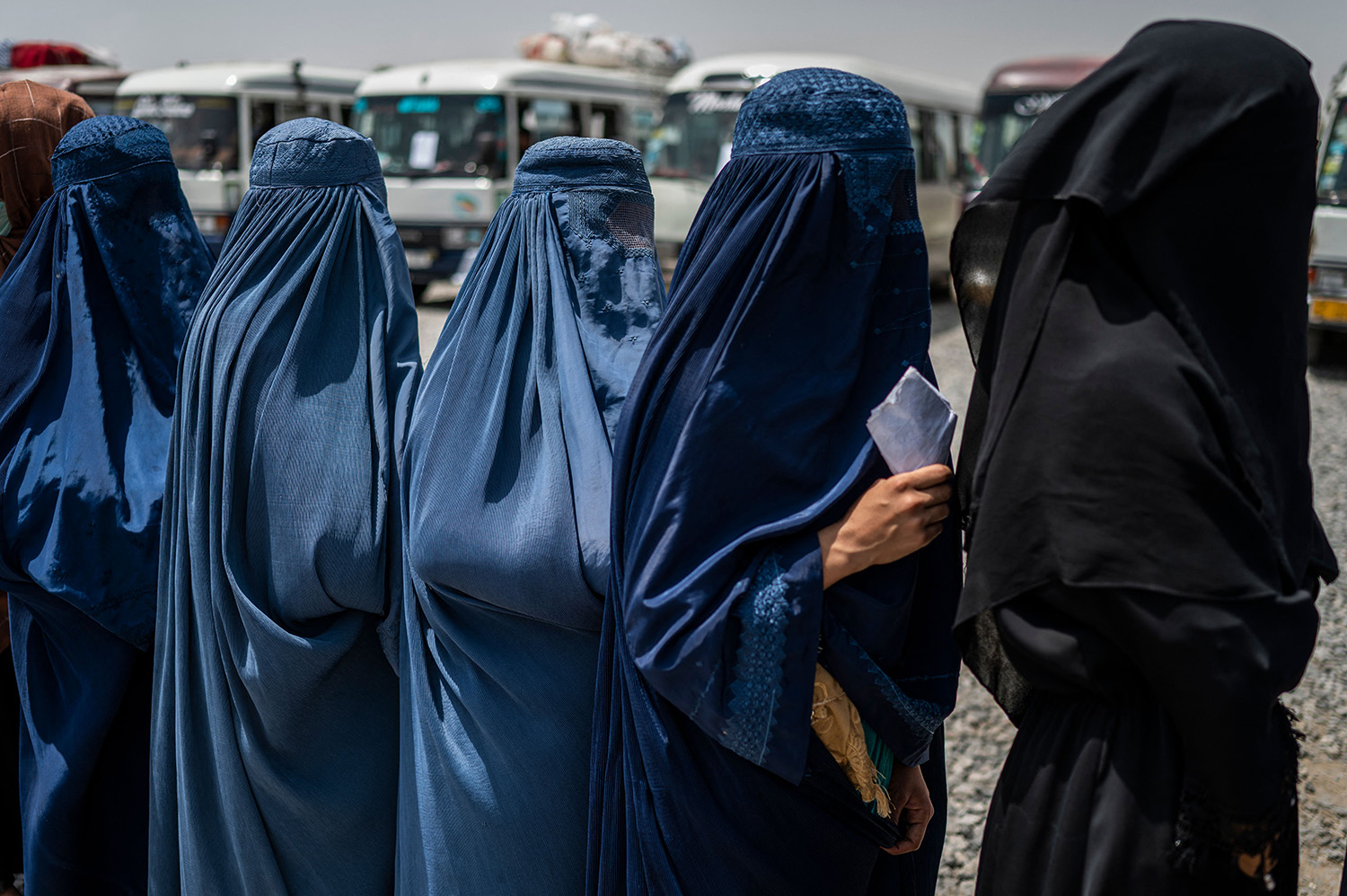
Afghan women working for the UN in Kabul say they have been betrayed by the organisation’s failure to protect them from the Taliban’s gender apartheid. Also in today’s Sensemaker: why an opposition win in Thailand isn’t quite a win.
- Ukraine said it shot down all 18 missiles Russia launched at its cities overnight.
- Elon Musk was subpoenaed in the US Virgin Islands’ lawsuit against JP Morgan for its ties to Jeffrey Epstein.
- Hiroshima survivors gathered to urge the G7 to forswear the use of nuclear weapons.
The UN in Afghanistan has been infiltrated by Taliban informants and is failing to protect local female staff from harassment and intimidation, staff members tell Tortoise.
At the same time, top UN agencies – including Unicef, the World Food Programme and the WHO – have bowed to Taliban pressure for male-only offices, which Afghan women say makes them complicit in the country’s extreme gender-based restrictions.
So what? Surrendering to the Taliban undermines women’s rights everywhere.
- The UN sets standards for working conditions across the humanitarian world.
- When the Taliban banned women from working at the UN last month the UN refused to comply. It has now effectively abandoned that position.
- There were alternatives (see below). Not taking them “risks sending a terrible message to the Taliban that anything goes,” says Professor Karima Bennoune, a former UN Special Rapporteur – “a message to women everywhere that their rights are somehow negotiable”.
A local female UN employee said: “I feel that the UN not only betrayed its own women staff but also the whole Afghan women with this decision. The UN was the only hope for Afghan women to stand up for our rights. But it didn’t even support its own staff.”
The fall. Afghanistan has had two de facto governments since the fall of Kabul in August 2021. One is the UN and its agencies, led by Deputy Special Representative Ramiz Alakbarov. The other is the Taliban.
The country is enduring “the largest humanitarian crisis” on earth. Two-thirds of its 40 million population need urgent humanitarian assistance to survive. But the Taliban’s supreme leader has made aid workers’ work more difficult at every turn:
- Last December the Taliban banned all NGOs from employing local female staff.
- It was one of more than 40 edicts removing women from public life.
- Last month it was extended to the UN, which refused to enforce it on the basis that to do so would have violated international law and its own charter.
Undercutting local women. Initially, the UN presented a united front – all its organisations sent their male and female Afghan staff home while weighing up the options.
Now Afghan men employed by the WFP and the WHO, among others, have been told to return to work, while women have not.
No protection. Some organisations, like Unicef, have said women can return with the men. But Afghan women who have spoken to Tortoise say there are no protection measures in place for them even in supposedly secure UN compounds.
One said security measures supposedly put in place for women since the ban were “paperwork, not practically applied”.
An internal UN document leaked to Tortoise recommends telling journalists that the “safety and security of staff is of our utmost priority” so “the UN does not comment publicly on detailed staff composition and presence or operational working modalities” – UN-speak for “say nothing”.
A spokesperson for WFP Afghanistan said: “Afghan women UN personnel continue to be employed and no women will be replaced by men”. They said the “necessary staff support systems are functional” and “full priority” was given to female staff members.
Afghan women say:
- The UN has hired Taliban personnel, knowingly and unknowingly, inside all UN compounds.
– These personnel have acquired sensitive information, including staff profiles.
– They have taken pictures of Afghan women who are not “properly dressed” and harassed them for this.
The UN itself has acknowledged this. Last week, its mission in Afghanistan said local female staff had experienced “restrictions on their movements, including harassment, intimidation, and detention”.
Tough call. Experts admit deciding between defying the Taliban and potentially withholding aid is “an incredibly difficult position” and an “appalling choice”.
The alternatives. Aid workers and campaigners say
- the UN and NGOs could present a more united front instead of their current confused and contradictory messaging;
- the UN could threaten to suspend humanitarian assistance; or
- it could pull out completely.
Instead, one of the UN’s biggest operations continues to operate in violation of its own core principles. “It’s all incredibly shortsighted,” one international UN staff member said. “Ultimately we’ll only be able to give aid to men, as you need women to access children. It’s a desperate act of self-preservation. It’s not about long-term vision. [For senior UN management], it’s about keeping their jobs.”
International staff in Kabul fear that once the dust settles, the Afghan women will be “phased out”, leaving them with no income.
“It’s a tough situation but not a reason to throw women under the bus,” one said.
Unicef and WHO had not replied by the time of publication.











